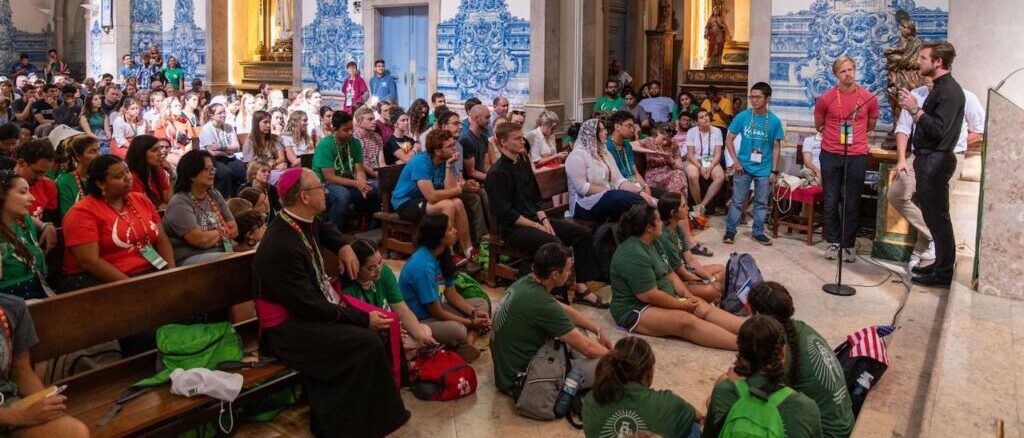An important part of every World Youth Day (WYD) is the catechetical opportunities for pilgrims. I was selected to provide the reflection on Pope Francis’ third encyclical, “Fratelli Tutti,” at one of those sessions. That encyclical, along with his second one, “Laudato Si’,” provided much of the Holy Father’s focus for WYD.
The pope addresses concerns about our relationship with the created order and the physical environment in “Laudato Si’.” In “Fratelli Tutti,” he emphasizes our relationship with each other in the human family, and the spiritual, cultural, social, political and economic relationships in society within the physical environment.
He notes St. Francis’ affection for and connection to creation, and at the same time his longing to restore relationships between us as brothers and sisters. St. Francis’ establishment of a religious order of priests, brothers and sisters in consecrated communities were a practical expression of how we are to relate to one another in charity and to the world around us in good stewardship.
These relationships with the environment and with each other were established by God when he created the world to be in harmony. Recall from Genesis that God first created the heavens and earth, and the crown of creation was the human person in relationships of love. This was the friendship intended from the beginning between Adam and Eve and God.
All of creation was in harmony with God and we with each other until it was shattered by original sin. Christ is the remedy to that sin, the one among us who restores harmony in all the created order through his Paschal Mystery.
We are called to be part of that restoration through fraternal charity and good stewardship of our common home, living lives that will help reestablish the loving relationship God intended from the beginning — between human beings, and us with nature.
In “Fratelli Tutti,” Pope Francis wrote: “To care for the world in which we live means to care for ourselves. Yet we need to think of ourselves more and more as a single family dwelling in a common home.” [Emphasis added] (Laudato Si’, 27).
Ours is not the pagan understanding of the environment that we should not use it, that we have no “dominion” or authority over it, and that we are intruders upon it. Rather, as Christians we understand that God created Earth for humanity to live in harmony with God, with the environment and with each other. We are stewards of creation; we cultivate it, safeguard it, and share in its fruitfulness.
Unfortunately, our stewardship is sometimes lacking. In recent months we have breathed smoke-filled air and seen the desolation caused by raging fires when our environment is not given the attention it requires and deserves.
In “Fratelli Tutti,” Pope Francis calls us to fraternal care by referring extensively to the parable of the Good Samaritan. This care is void of bitterness, ideologies, anger and resentment, all of which cause us to lash out rather than to reconcile. Fraternal care is rooted in God’s love and mercy. When we’re filled with that mercy, we tend to act with mercy.
As our Holy Father stated: “Let us take an active part in renewing and supporting our troubled societies. Today we have a great opportunity to express our innate sense of fraternity, to be Good Samaritans who bear the pain of other people’s troubles rather than fomenting greater hatred and resentment. Like the chance traveler in the parable, we need only have a pure and simple desire to be a people, a community, constant and tireless in the effort to include, integrate and lift up the fallen” (“Fratelli Tutti,” 77).
Due to original sin, a fracture occurred in the communion intended by God — between us, God and the environment. Adam and Eve cover themselves and hide from God in shame. They are cast out from Eden and experience suffering and death, all giving evidence of the break in the order of creation.
But, through his Paschal Mystery, Christ reconciles all of creation, humanity with God the Father and each of us with one another. He also assures us of a new heaven and a new earth when he comes again in glory.
Possibly we can take to heart our Holy Father’s teaching and see that fraternal love and care for creation are integral to one another. Pope Francis invites us to cooperate with God’s grace and aspire to an integral human ecology, to see as integral the spiritual, social, political, economic and environmental dimensions of human life, and our love for one another as expressed in “Fratelli Tutti.” Further, in “Laudato Si’,” he calls us to the care for our common home as well.

